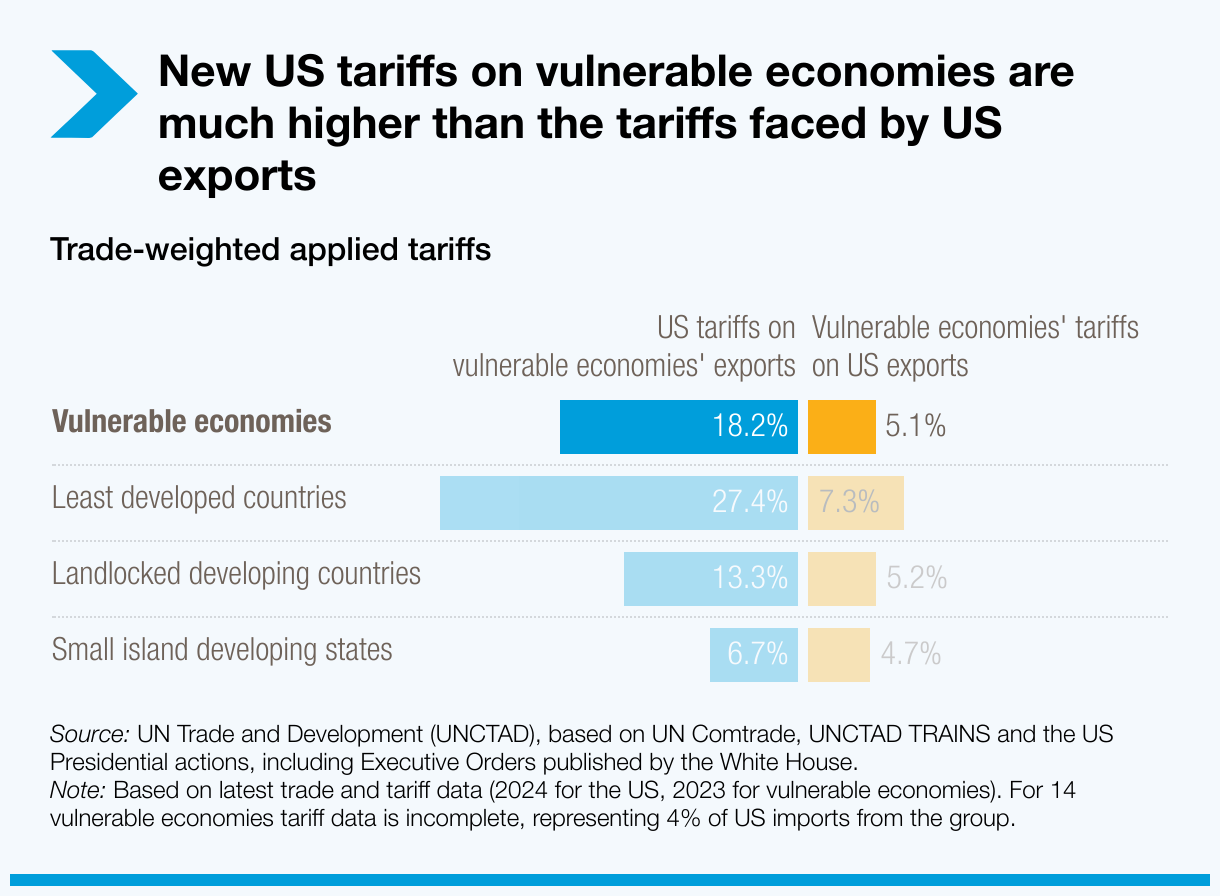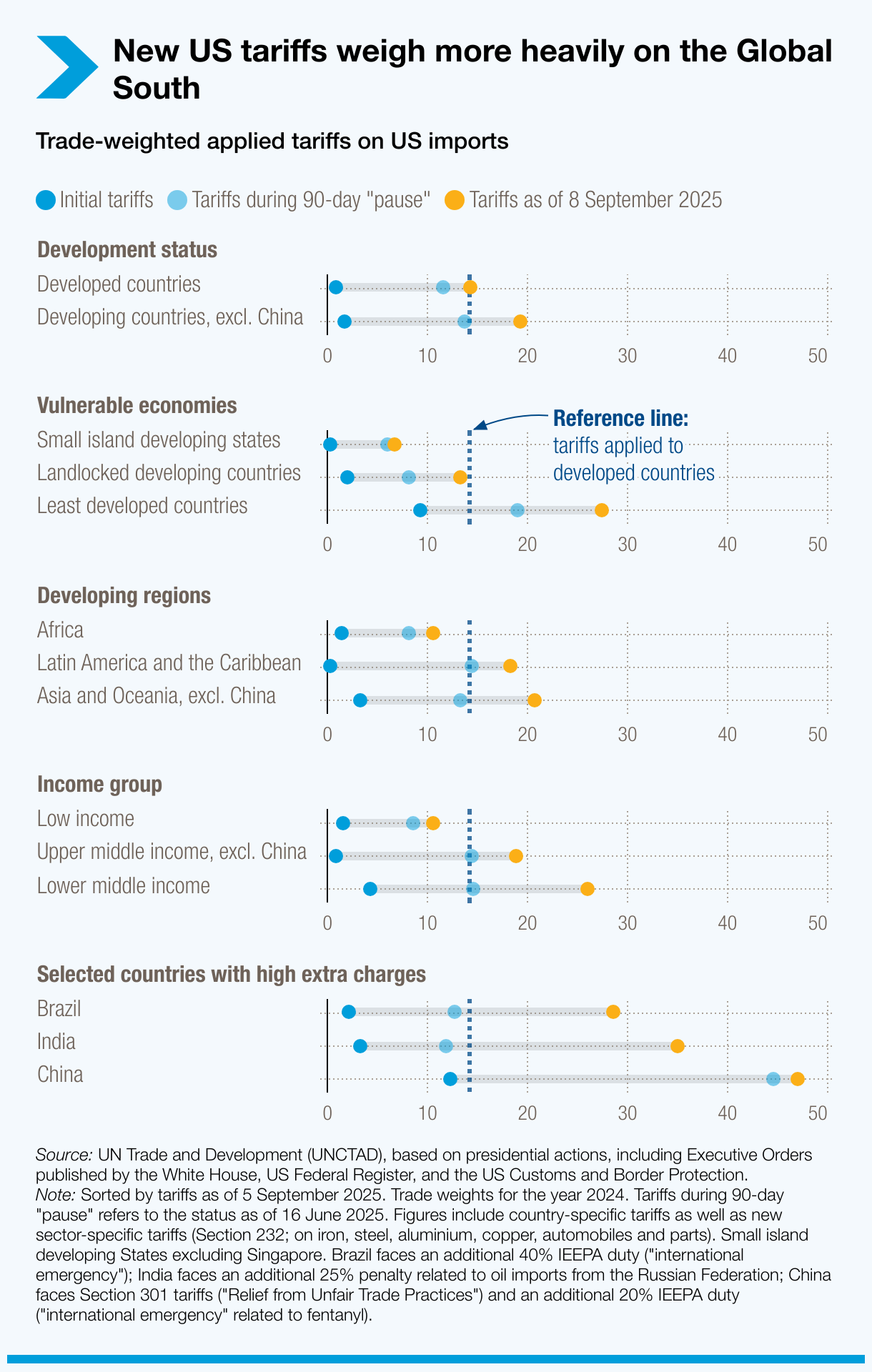The United States implemented new differentiated tariffs on almost all trading partners, with developing countries facing the steepest increases as America departs from World Trade Organization principles that have governed international trade for 30 years, according to a comprehensive analysis mentioned in a UNCTAD press-release. The analysis, published on September 17, shows U.S. tariff rates jumped from an average 2.8% before 2025 to over 20% by early September, abandoning the WTO’s most-favored-nation principle that requires equal treatment for trading partners. The new country-specific approach pursues various goals including reducing trade deficits and advancing non-trade policy objectives through punitive measures.
Sixteen developing countries, including five least developed nations, now face tariffs above 25% after the measures took full effect on August 7 following a 90-day delay. Least developed countries saw trade-weighted average tariffs double to 19% during the pause period and climb further to 27% in September. Developing countries in Asia and Oceania experienced increases from 3% to 21%, while Latin America and the Caribbean faced a 60-fold jump from below 0.5% to 18% due to the loss of preferential access.

Source: UNCTAD
Beyond trade deficit reduction, the U.S. imposed extra duties for non-trade reasons including 40% additional tariffs on Brazil over social media policies and former president prosecution, plus 25% on India over Russian oil imports. Mexico and Canada face 25% and 35% additional tariffs respectively under emergency powers to combat border crossings and fentanyl trafficking. China’s tariffs stabilized at 47% after initially exceeding 100% and triggering retaliatory measures.

Source: UNCTAD
The U.S. expanded national security tariffs under Section 232, doubling steel and aluminum levies to 50% and adding new 25% automobile tariffs and 50% copper duties. Three least developed countries rank among the ten most affected: Myanmar at 49%, Laos at 38%, and Bangladesh at 35%.

